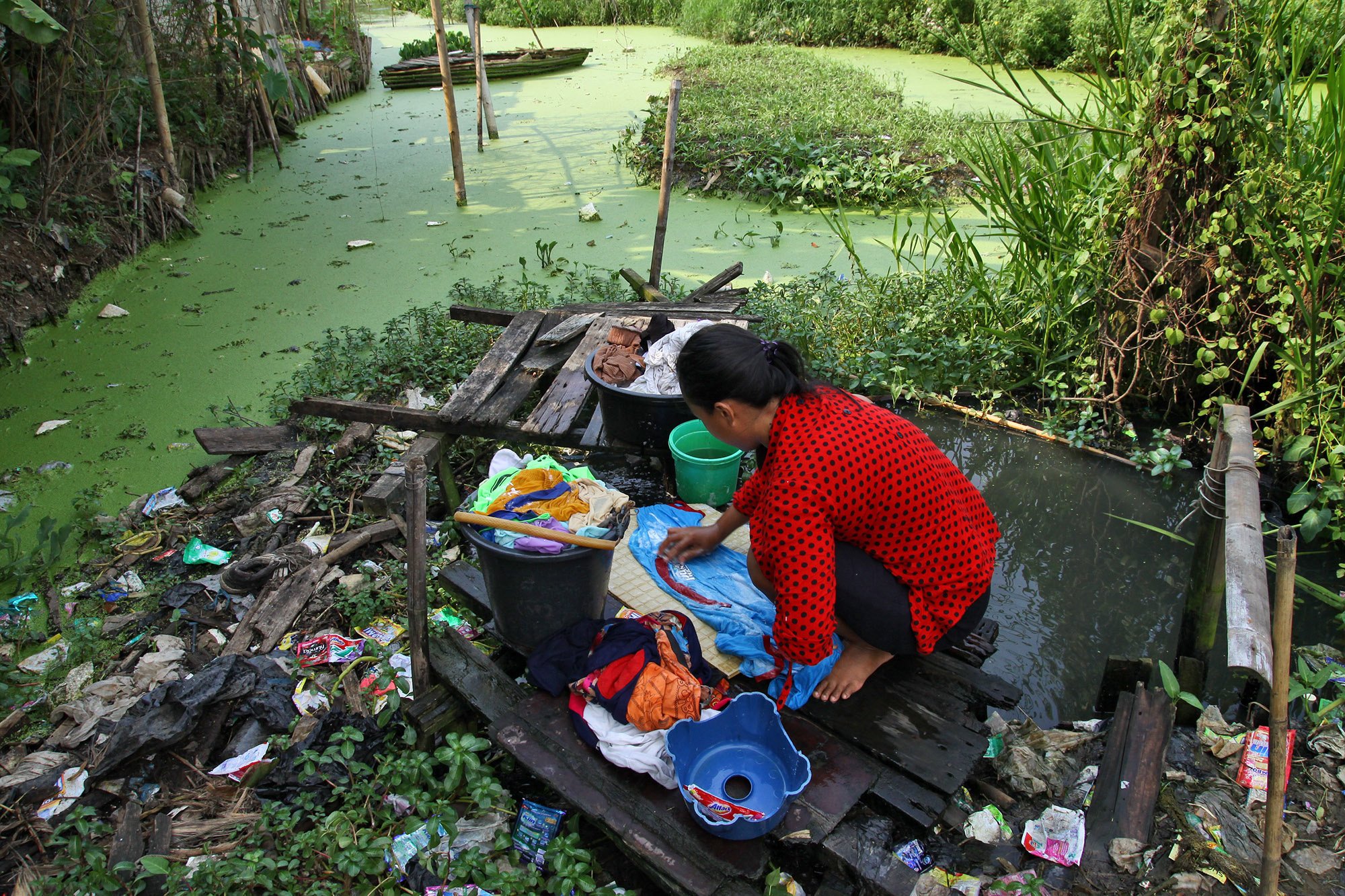
Billions of people around the world face water insecurity. Although there are numerous projects from governments, NGOs, and private corporations who are committed to providing safely managed water and sanitation by 2030, a new study advocates for more holistic evaluation of water, sanitation, and hygiene (WASH) interventions.
According to the study by Justin Stoler, associate professor in the University of Miami College of Arts and Sciences Department of Geography and Sustainable Development, issues like mental health, violence, injury, and discrimination, are examples of additional challenges that must be measured when considering global WASH projects.
“Most of the world views water projects through the lens of water quality, which I call the ‘20th-century mentality.’ Water quality is still important, but there are additional consequences of water scarcity that need to be considered when it comes to individual health and well-being,” said Stoler. “Water insecurity can ruin people’s lives in lots of ways. But water-quality data still drives the narrative of what safe water means without considering other elements like mental health, gender disparities, and injuries that can occur when retrieving water.”
Even when water is safe to drink, millions of people face harassment, assault, anxiety, depression, or work, school, or family care absenteeism when retrieving or consuming household water, according to the study.
Stoler adds that these additional stressors are rarely considered in studies and data that are used to drive policy and implement WASH projects and infrastructure needs. As a result, he thinks that water interventions probably undersell their impacts, which leads to governments and policymakers under-valuing WASH projects.
“For example, the media often presents images of women and children collecting water. But what we rarely see is the long trek to reach that water source, a trip that could be complicated by challenging terrain, animal attacks, or anxiety about male predators along the way,” said Stoler. “There’s a physiological burden—carrying loads of water every day takes a toll on the human body—as well as a mental health burden that includes the anxiety women experience from being vulnerable to violence or injury when retrieving water, or potential intimate partner violence at home if water supplies are insufficient.
“WASH projects often mitigate these circumstances,” he added,” but program managers tend to be so focused on water quality that they are not measuring other important quality-of-life improvements.”
The study was the result of an interdisciplinary collaboration with researchers from the Pulte Institute for Global Development and Keough School of Global Affairs at the University of Notre Dame.
Stoler worked with two Notre Dame colleagues: Danice Brown Guzmán, an associate director for the Pulte Institute’s Evidence and Learning Division, who is an expert in experimental and large-scale data collection to measure impacts from food security, gender, education, and WASH projects; and Ellis Adams, associate professor of geography and environmental policy at the Keough School of Global Affairs, who studies the social, political, institutional, and governance dimensions of natural resources.
Their project also generated a policy brief for the Pulte Institute’s Policy Brief Series and a comment in The Lancet Global Health.
“This project provides a roadmap for a new approach to monitoring and evaluating WASH programs that will more fully highlight the broad impact of these interventions,” said Stoler. “Our hope is that by showcasing the wide-ranging impacts of WASH projects—and their transformative relationships with other grand challenges related to poverty, food security, education, and others—we can attract financing from global institutions to ramp up WASH projects and make global safe water a reality.”
